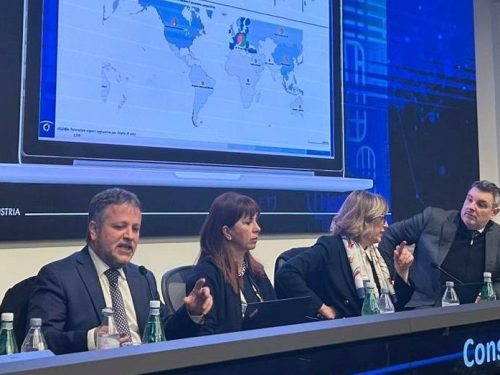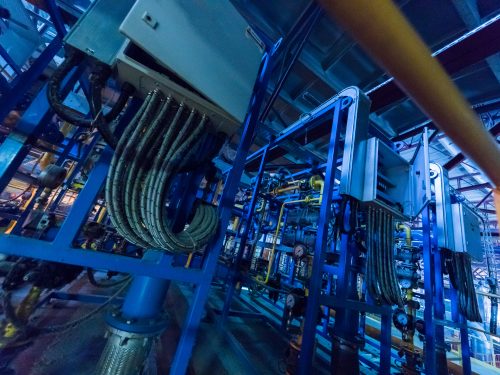Communiqué
Print
Share on
MISMATCH, CONFINDUSTRIA: MORE THAN TWO OUT OF THREE COMPANIES CANNOT FIND THE REQUIRED PROFESSIONAL FIGURES
Aleotti: 'Skills mismatch is a national problem hindering the country's development'
Di Stefano: 'Companies react to mismatch by investing in training'
Rome, 10 December 2024 - More than two thirds of Italian companies report difficulties in finding the skills needed for their activities, with particularly evident criticalities in finding technical profiles, indicated by 69.2% of companies, and personnel for manual tasks, indicated by 47.2% at national level and 58.9% in the industrial sector. Difficulties appear less significant in relation to transversal skills, reported by 16.5% of companies, and managerial skills, indicated by 8.3%. These data emerge from theConfindustria Labour Survey 2024presented today in Rome during the conference "Skills and work: the Confindustria Survey and the challenges for companies"..
Le difficulty of enterprises are mainly concentrated in key areas such as digital transitionwhere two out of three companies report problems in finding suitable skills. Also internationalisation represents a critical area for about one third of the companies, while the green transition is indicated by 15.1% of the companies as an area in which it is complex to find specialists.
To cope with these problems, Italian companies rely on several solutions. The staff training internal is the main answer, adopted by 59.7% of the companies. Many realities, accounting for 49% of the total, rely on external consultancies to bridge skills gaps, while almost a third (28.5%) participate in territorial educational initiatives, such as ITS Academies, pathways for transversal skills and orientation (PCTO), and curricular internships.
The incidence of mismatch varies according to sector and company size. In the industrial sector, 73.5% of companies report difficulties in finding skills, compared to 65% in the service sector. The percentage increases with company size, ranging from 64.8% in small companies, to 72.8% in medium-sized companies, to 77.6% in large companies.
"Italian companies are struggling to find suitable profiles in many strategic sectors, a sign of a strong mismatch between required and offered skills. Worsening the picture are the demographic decline and ageing population, which amplify the shortage of workers, making it necessary to increase labour market participation and attract skilled immigrants. The mismatch between labour supply and demand does not only affect companies, but the entire country, compromising its economic development. We need a systemic approach that involves institutions, companies and the education system in a common and coordinated effort to meet this challenge,' he said. Lucia Aleotti, Vice-President of Confindustria with responsibility for the Study Centre.
"The Confindustria job survey shows how companies, despite the skills mismatch, react by collaborating with the education system through PCTOs, apprenticeships and ITS Academies, supported by territorial and trade associations. Its value also emerges from the inclusion among the sources of Minister Valditara's letter addressed to middle school students and their families, confirming it as a useful tool for understanding market trends and orienting young people towards training paths in line with labour needs. A valuable contribution also for the orientation of young people,' he added Riccardo Di Stefano, Confindustria President's Delegate for Education and Open Innovation.
Staff training thus emerges as one of the most effective tools to overcome skills shortages. In 2023, 57% of Italian companies invested in training activities, but this percentage rises to 66% among companies that reported difficulties in recruiting. The phenomenon is particularly evident in the industrial sector, where there is a difference of 18 percentage points compared to the general average, with a peak of 21.6% among small enterprises.





